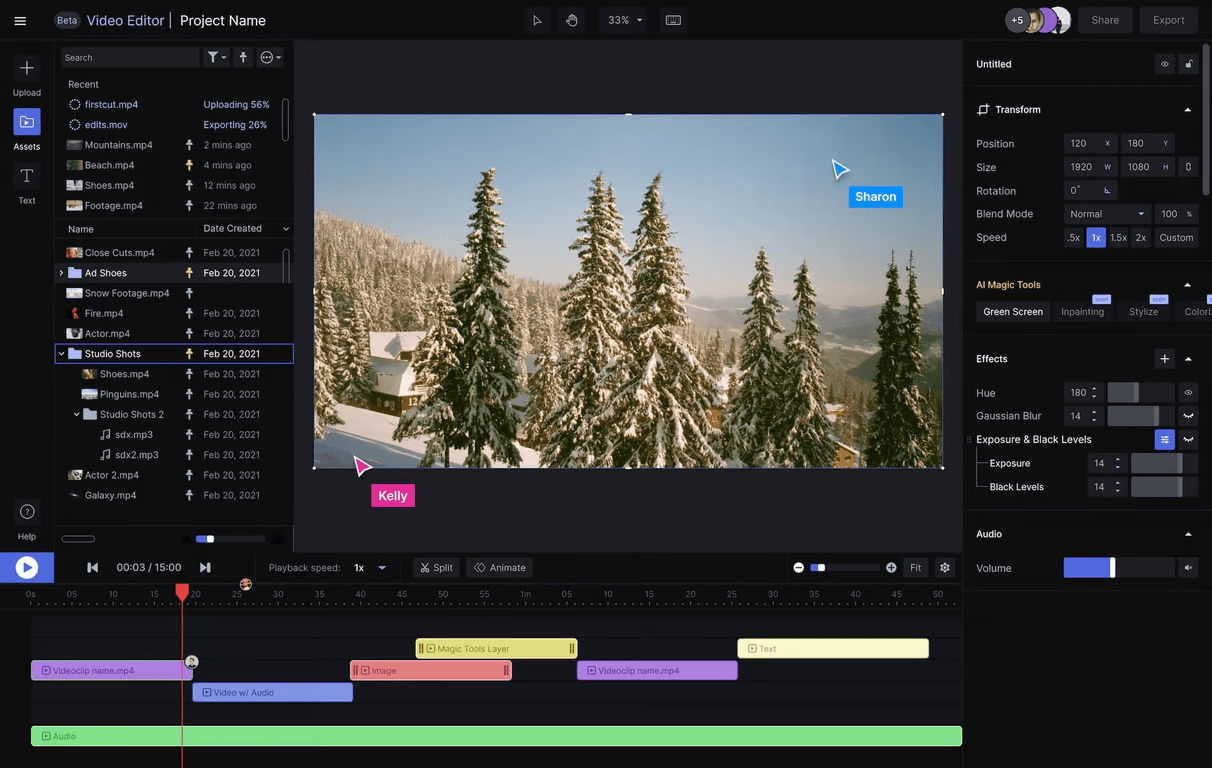When it comes to digital marketing, one of the most significant decisions businesses must make is whether to focus on search engine optimization (SEO) or pay-per-click (PPC) advertising. Both strategies can drive traffic to a website and ultimately lead to conversions, but they work in very different ways.
In the following article, you will learn what SEO is and its PROs and CONs of it. Next, we will look into PPC and its PROs and CONs and finally help you make the right decision for your business.

Organic Traffic (SEO)
SEO is optimizing a website to rank higher in search engine results pages (SERPs) for targeted keywords. This is accomplished through on-page optimization, link building, and other tactics that improve a website’s relevance and authority in the eyes of search engines.
By optimizing a website’s content and structure, businesses can attract more organic traffic, meaning they don’t have to pay for advertising to get in front of their target audience. Companies can improve their search engine ranking and earn more traffic by making a website more relevant and valuable to users.
SEO is a long-term strategy that can take months or even years to see significant results.
Advantages of SEO:
- It’s Cost-effective. Unlike paid advertising, which can be expensive and requires continuous investment, SEO is a long-term strategy that can provide lasting results at a lower cost. By investing in SEO, you can improve the ranking of your website on search engines without having to pay for each click on your ads.
- They increased credibility and trust. People searching for products or services online are more likely to trust organic search results than paid advertisements. By improving the ranking of your website on search engines, you are more likely to be seen as a credible and trustworthy source of information by potential customers.
- Better user experience. SEO benefits your website’s ranking on search engines and improves the user experience for those who visit your site.
- By optimizing your website for search engines, visitors can easily find the information they are looking for and navigate your site more easily. This can ultimately lead to higher conversion rates and more satisfied customers.
- Increased competitiveness. SEO is an essential aspect of online marketing and can be a competitive advantage for businesses. By investing in SEO, you can improve the ranking of your website on search engines and outrank your competitors. This can help your business stand out in a crowded market and gain a larger online market share.
Disadvantages of SEO:
- It takes time to see results. Unlike paid advertising, where you can see immediate results, SEO requires patience. It can take months for your website to rank higher in search engine results.
- It requires ongoing effort. SEO is not a one-time thing – it requires regular effort to maintain and improve your website’s ranking. This can be time-consuming and require specialized knowledge.
- Changes in search engine algorithms can impact your ranking. Search engines periodically update their algorithms, which can change your website’s ranking. This can be frustrating, as you may have to adjust your strategy to keep up.
- It can be expensive. Hiring an SEO agency or specialist can be costly, especially for small businesses with limited budgets.
- It’s not a guarantee of success. While SEO can improve your website’s visibility, it’s not guaranteed to lead to increased traffic or conversions.
- Other factors, such as the quality of your website and its content, also play a role in its success.
Paid search traffic
PPC advertising involves placing ads on search engine results pages or other websites and paying for each click on the ad. To place ads on Google, the biggest search engine, you can do it through Google ads. I recommend working with a Google Ads agency to have everything in place.
This lets businesses immediately drive targeted traffic to their website and generate leads or sales. PPC advertising is a shorter-term strategy that allows companies to quickly test different messaging and targeting options to see what works best.
Paid traffic can take many forms, including ads on search engines, within context, social media ads, etc. In this article, I’m considering ads within search engine results (for a more related comparison).
Advantages of PPC:
- Immediate results: Unlike organic search engine optimization, which can take months to see results, PPC ads can generate traffic and leads almost immediately.
- Cost-effective: PPC ads can be highly cost-effective, as you only pay when someone clicks on your ad. This allows you to control your advertising budget and get a good return on investment.
- Targeted advertising: PPC ads allow you to target specific keywords, demographics, and locations, ensuring that the right people see your ads at the right time.
- Measurable results: PPC ads provide detailed performance data, allowing you to track the success of your campaigns and make any necessary adjustments to improve outcomes.
- Increased brand visibility: PPC ads can help improve your brand visibility, as your ads will appear at the top of search engine results pages, increasing the likelihood that people will see your brand.
Disadvantages of PPC:
- Cost: One of the most significant disadvantages of PPC ads is the cost. Because businesses are charged every time a user clicks on their ad, the price can quickly add up, especially if it is ineffective at generating conversions.
- Competition: PPC ads are typically auction-based, meaning businesses compete against each other for ad placement and visibility. This can make it difficult for businesses, tiny ones, to compete with larger companies with bigger advertising budgets.
- Limited control: With PPC ads, businesses have limited control over where and when their ads are shown. This can make it difficult to accurately target the desired audience and result in ads being shown to users who are not interested in the advertised product or service.
- Lack of long-term benefits: Unlike SEO, PPC ads only provide short-term benefits. Once a business stops running its PPC ads, it will no longer be visible to its target audience and lose the potential for conversions.
Check this article if you want to know more about the advantages and disadvantages of PPC.
Key Takeaways
Both SEO and PPC have their advantages and disadvantages. SEO is a long-term strategy that can provide a steady stream of organic traffic to a website. However, it can take time for SEO efforts to yield results, and the constantly changing algorithms of search engines can make it challenging to maintain a high ranking.
On the other hand, PPC advertising can provide quick results and allow businesses to target specific keywords and demographics. However, PPC can be expensive, and companies must continuously monitor and adjust their campaigns to get the best results.
Conclusion
SEO and PPC can effectively increase traffic and improve a website’s online presence. The key is to understand the advantages and disadvantages of each and determine which digital marketing strategy best suits your business’s goals and needs.








